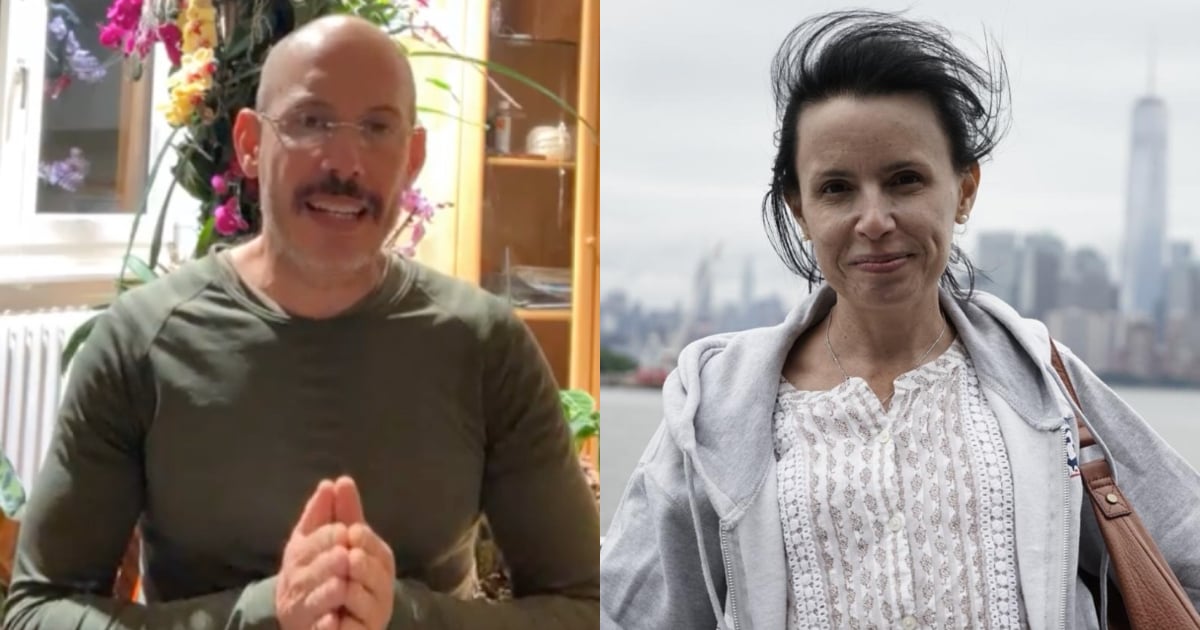The Cuban communist regime's attempts to control dissent have now extended to the mother of Omara and Ariel Ruiz Urquiola, two well-known activists and critics of the government. Despite preventing the siblings from returning to Cuba and facing accusations of infecting Ariel with HIV, authorities are now focusing on their mother. Following her children's forced exile, the 78-year-old retired Biology professor took responsibility for the farm Ariel had in usufruct in rural Pinar del Río. Recently, officials from the Ministry of Agriculture informed her that the contract is being terminated due to alleged non-compliance.
Having weathered hurricanes and the challenges of rural life, the elder Ruiz Urquiola has managed a small plot dedicated to livestock and native species recovery. However, on November 18, representatives from Viñales' Agriculture Delegation delivered a document threatening to revoke the usufruct, citing Ariel's absence from Cuba as the reason for non-renewal. Both Ariel and Omara have clarified on Facebook that renewing the contract is impossible as the regime bars them from returning. In 2020, Ariel couldn't renew his passport, anticipating this, he granted Omara a power of attorney in Havana, yet she too has been denied re-entry.
Enduring Intimidation and Legal Battles
Omara Ruiz Urquiola expressed on Facebook, "My brother is outside because they won't let him in. The Agriculture Delegation verified with Immigration that he hasn't entered Cuba. They ignored my notarized authority over the animals and the house, knowing full well I can't enter due to restrictions by the Ministry of the Interior and Immigration. Despite threats to demolish structures on our land, the farm continues to thrive due to my mother's relentless dedication."
The regime's actions appear to be a form of retaliation, targeting the family through their livestock, aware of the emotional bond they share with the animals. Omara warns that the authorities aim to confiscate their healthy, predominantly pregnant cattle and send them to slaughter, disregarding her legal rights. She described their actions as a vendetta against their elderly mother, a respected and peaceful retired professor.
A History of Resistance
Ariel Ruiz Urquiola has openly criticized the actions of the Viñales Agriculture Delegation, labeling them "human rights violators and white-collar criminals" in a detailed Facebook live session. He recounted the arduous process of securing the land in 2015, which was marred by delays and bureaucratic hurdles. Despite signing a five-year usufruct contract in May 2016, the regime's institutions failed to fulfill their commitments, such as providing necessary livestock breeding resources.
He asserts that the usufruct system benefits regime loyalists and politically compliant individuals, who must answer to the authorities akin to the rural guard's practices before the 1959 revolution. After being expelled from the University of Havana and refusing to leave Cuba for further studies, the political police attempted to terminate his usufruct under false pretenses. Ariel continued cultivating the land, believing in the distinction between abuse and rightful resistance.
Both siblings remain defiant, stating that neither they nor their mother will succumb to the regime's intimidation tactics. Ariel has vowed that his mother will only leave her home under duress, highlighting the regime's failure to break their spirit. "You are trying to destroy this elderly woman's life solely because you haven't subdued her children," he concluded.
